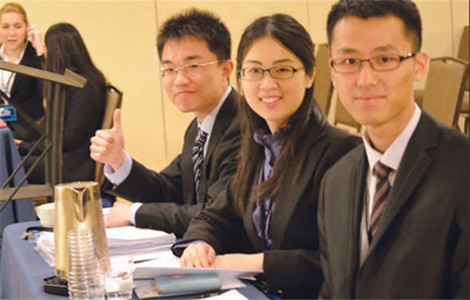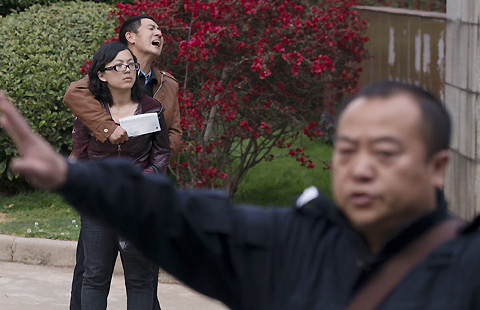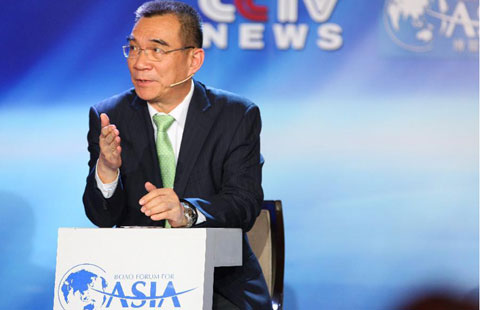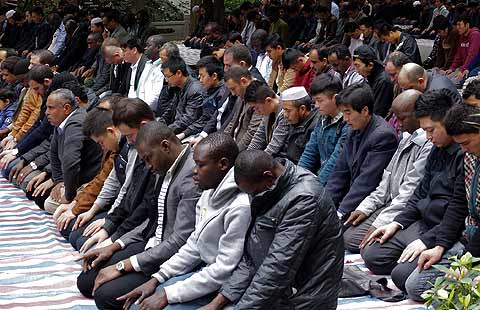FTZ arbitration rules published
Updated: 2014-04-09 07:15
By Zhou Wenting in Shanghai (China Daily)
|
|||||||||
China (Shanghai) Pilot Free Trade Zone Arbitration Rules, which legal experts say are tailored for the FTZ and consistent with international standards, were published on Tuesday.
The rules, which consist of 10 chapters and 85 articles, include innovations that are brought into the country for the first time and are the outcome of giving full consideration to the characteristics of businesses in the FTZ, said Huang Wen, deputy secretary-general of Shanghai International Economic and Trade Arbitration Commission, which founded the court of arbitration for the FTZ in October.
One thing novel in the rules, which will become effective as of May 1, is that people can choose arbitrators outside the panel of mediators.
The commission has a panel of 625 arbitrators, including 199 from 37 foreign countries and regions.
"Many new types of cases, such as offshore finance and e-finance, may occur in the FTZ. Professionals from the specific industries may have more experience on the front lines than those on the panel. They can make proper judgments when no applicable law is available," said Huang.
An arbitral tribunal that hears a case is composed of three arbitrators. Each side chooses one, and the presiding judge is selected by the two sides to ensure neutrality, said Yao Hongmin, assistant secretary-general of the arbitration commission.
The expert panel is a crucial reason that some enterprises opt for arbitration rather than hearings in regular courts, Yao said, because people can choose arbitrators but cannot pick judges.
Another innovation is that companies involved in commercial disputes relating to less than 100,000 yuan ($16,120) can apply for a summary procedure of arbitration, which means a lower service fee and an earlier date for the case to be heard, said Huang.
"The standard to apply for a summary procedure used to be 1 million yuan. The change was implemented to provide a convenient legal service to the small and medium-sized enterprises in the FTZ," he said.
Peter Howard Corne, managing partner of the Shanghai office of Dorsey & Whitney LLP, a global business law firm, said the arbitration rules were expected internationally.
"Arbitration is accepted in many countries, especially in cargo trade, which will be a key sector in the FTZ. But many multinationals weren't willing to opt for arbitration in China because the country's Arbitration Law was limited," said Corne, who has dual British and Australian nationality.
"But these rules comply with international standards, therefore arbitration will be an important approach to resolving commercial disputes in the FTZ," he said.
zhouwenting@chinadaily.com.cn
(China Daily USA 04/09/2014 page16)

 Chinese schools vie in moot court
Chinese schools vie in moot court
 Australian divers start underwater search for MH370
Australian divers start underwater search for MH370
 Cleaver-wielding man subdued after tense standoff
Cleaver-wielding man subdued after tense standoff
 Pro-Russian demonstrators announce Kharkov's independence
Pro-Russian demonstrators announce Kharkov's independence
 Breakdancer 'freezes' in front of Paris landmarks
Breakdancer 'freezes' in front of Paris landmarks
 TV Debate in Boao Forum for Asia Annual Conference
TV Debate in Boao Forum for Asia Annual Conference
 Ming Dynasty 'chicken cup' sells for record $36 million
Ming Dynasty 'chicken cup' sells for record $36 million
 Simply child's play
Simply child's play
Most Viewed
Editor's Picks

|

|

|

|

|

|
Today's Top News
Rwandans told 'never again'
Kim Jong Un reelected first chairman of NDC
Blast kills 23 in market on edge of Pakistani capital
Cross-border deals headed south?
Two more 'pings' detected in search for MH370
China urges US to restrain Japan
Moscow warns Kiev of 'civil war'
Asia Society in NYC launches think tank
US Weekly

|

|








